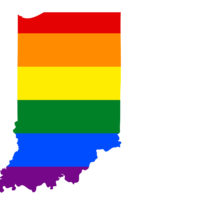
For the first time in Italy, two gay partners have been legally recognized as fathers of two surrogate children.
The children were born to a surrogate mother in the United States using artificial insemination, but both of the men will officially be named as its father – not just the parent who is biologically related.
Judges at Trento’s Court of Appeal made the historic ruling in line with the birth certificate issued in the US, which stated the dual paternity, according to the Article 29 website.
The website, which takes its name from the article in the Italian Constitution regarding family life, published the ruling on Tuesday, though the ruling was dated February 23rd.
In their decision, judges noted that the foreign birth certificate was valid because in Italy parental relationships are not determined solely by biological relationships.
“On the contrary,” they said, “One must consider the importance of parental responsibility, which is manifested in the conscious decision to have and care for the child.”
Article 29 said the decision had “great significance”, as it is the first time an Italian court has ruled that a child has two fathers.
Surrogacy in Italy
Italian law prevents couples from using a surrogate mother, and in theory, anyone caught entering into a surrogacy arrangement faces up to two years in prison and a fine of up to a million euros.
Two years ago, a child was taken from its parents who had paid a surrogate mother in Ukraine 25,000 euros. The couple were charged with fraud and the child put up for adoption.
TheLocal.it, February 28, 2017
Click here to read the entire article.
The post In landmark ruling, Italy recognizes gay couple as dads to surrogate babies appeared first on Time For Families.
Source: Time for Families














